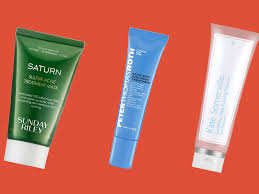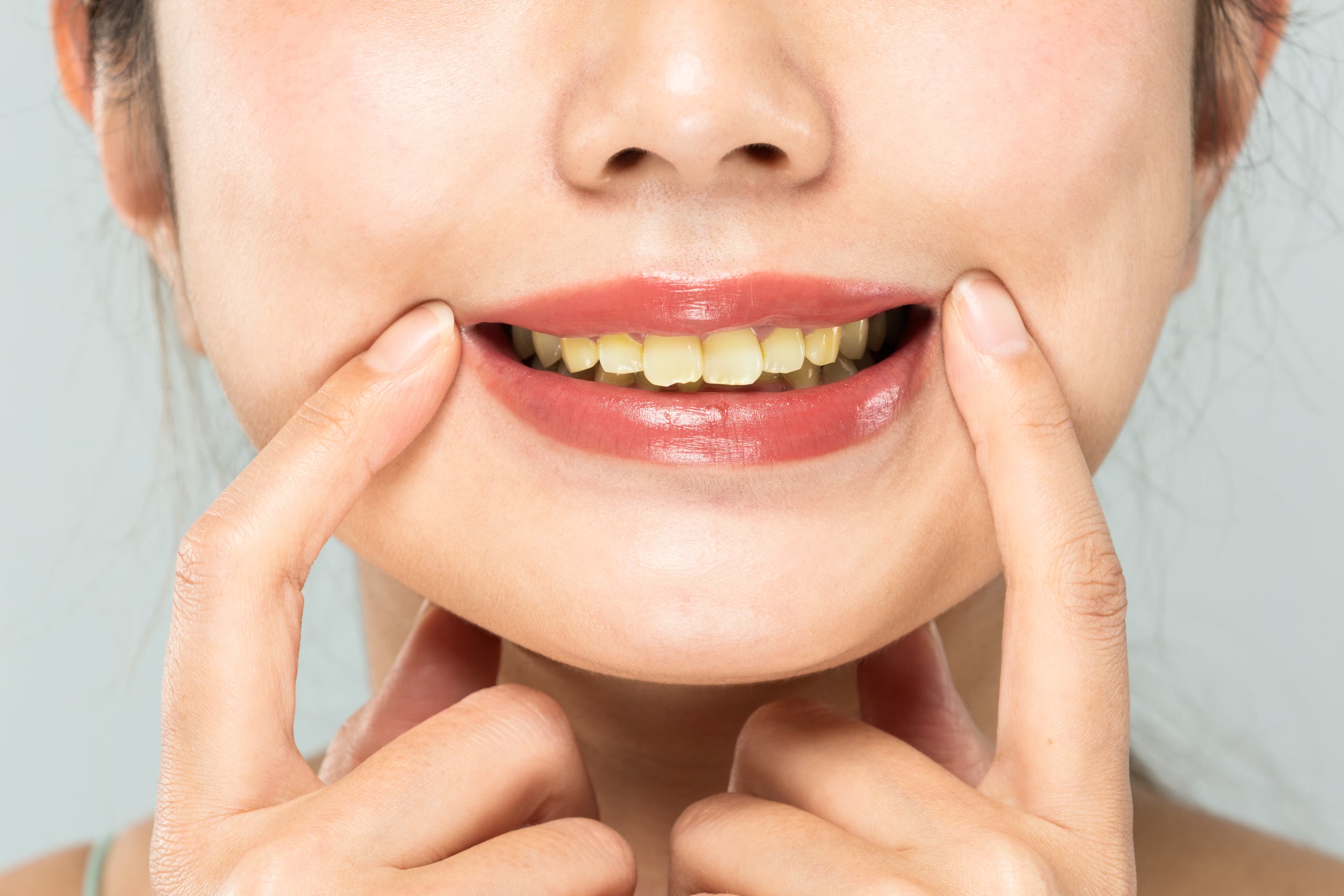
Sulfur in Skin Care
As a dermatologist, I often encounter patients seeking effective treatments for various skin concerns such as acne, rosacea, seborrheic dermatitis, and tinea versicolor. One of the time-tested ingredients that I frequently recommend is sulfur. This comprehensive guide will help you understand what sulfur is, its benefits, and its potential downsides. I’ll also share some recommended products containing sulfur and provide insights into the safety and side effects associated with its use.
Sulfur in Skincare: Sulfur is a versatile and effective ingredient for treating acne, rosacea, seborrheic dermatitis, tinea versicolor, and skin discoloration due to its antimicrobial and keratolytic properties.
Benefits of Sulfur: Known for its anti-inflammatory effects, sulfur helps soothe skin, reduce redness, and control bacteria and fungi, promoting a clearer and healthier complexion.
Combination Treatments: For enhanced effectiveness, sulfur can be combined with other exfoliants like salicylic acid, hydroxy acid, and retinoids, as well as skin lightening agents such as niacinamide.
Downsides of Sulfur: The strong, unpleasant odor and the yellow color of sulfur are significant drawbacks, often requiring careful formulation and the use of fragrances, which can sometimes irritate sensitive skin.
Safety and Side Effects: Sulfur can be drying and should not be used on babies due to the risk of systemic absorption; it’s essential to use sulfur products as directed and consult with a dermatologist for personalized advice.
Sulfur for Skin
As a dermatologist, I often encounter patients seeking effective treatments for various skin concerns such as acne, rosacea, seborrheic dermatitis, and tinea versicolor. One of the time-tested ingredients that I frequently recommend is sulfur. This comprehensive guide will help you understand what sulfur is, its benefits, and its potential downsides. I’ll also share some recommended products containing sulfur and provide insights into the safety and side effects associated with its use.
What is Sulfur?
Sulfur is a naturally occurring element found in the Earth’s crust, known for its distinctive odor and yellow color. It has been used for centuries in skincare due to its antimicrobial and keratolytic (scale removing) properties. In dermatology, sulfur is valued for its anti-inflammatory actions and it’s ability to reduce bacteria, fungi, and excess oil on the skin. It works by promoting shedding of the skin’s outer layer, which helps unclog pores and prevent the formation of acne and dandruff.
Good Products with Sulfur
Sulfur is yellow and smells bad, so it is hard to find good products with sulfur that you would be willing to wear. Your dermatologist may order a compounded sulfur solution for your skin. These are used to treat pimples, acne, dandruff and tinea versicolor.
Sulfur products that smell good and really work are hard to find. That is why Dermatologist Dr. Amy Brodsky created this sulfur face wash that also contains salicylic acid. it can be used as a face or body wash to treat acne, clogged pores, rosacea, tinea versicolor, psoriasis, and seborrheic dermatitis and bug bites. Its one of those products that you want to have around in case of a sudden skin reaction. It can even help soothe sunburn.
Sulfur for Skin Conditions
Sulfur has been used for centuries in skincare, dating back to ancient civilizations. The earliest known use of sulfur in skincare can be traced to ancient Egypt, where it was used to treat various skin conditions due to its antibacterial and antifungal properties. The Greeks and Romans also utilized sulfur baths for their therapeutic benefits. Over time, sulfur’s use in dermatology evolved, becoming a staple in traditional medicine for treating skin ailments such as acne, rosacea, and fungal infections. In the modern era, the development of sulfur-based formulations has continued to advance, incorporating new technologies and improved delivery systems to enhance its efficacy and reduce its characteristic odor, making it a more appealing and effective option for managing various skin conditions.
Acne
One of the most well-known uses of sulfur in skincare is for the treatment of acne. Sulfur helps to dry out the surface of the skin and absorb excess oil (sebum) that can contribute to acne breakouts. Its antibacterial properties help to reduce the bacteria that cause acne, while its keratolytic properties promote the shedding of dead skin cells that can clog pores. This combination makes sulfur an excellent treatment for both inflammatory acne and comedonal acne. It is often combined with salicylic acid in effective acne face washes.
Burns
Sulfur is also used in the treatment of burns, particularly in the form of silver sulfadiazine (brand name Silvadene). Silvadene is a topical cream that combines silver and sulfur to prevent and treat infections in burns. It helps to reduce bacterial growth and promotes healing in burn wounds. The silver component has strong antibacterial properties, while the sulfur aids in the regeneration of healthy skin tissue, making it an essential part of burn care.
Bug Bites
Bug bites can cause itching, redness, and swelling. Sulfur can be used to treat bug bites due to its anti-inflammatory and antimicrobial properties. It helps to reduce the itching and swelling, while also preventing any potential infection from scratching. Applying a sulfur-based ointment to bug bites can provide quick relief and promote healing.
Dandruff
Sulfur-based products can help soothe and clear up red dry patches on the face associated with seborrheic dermatitis. Seborrheic dermatitis (also known as dandruff when it affects hair covered areas like the scalp) can be managed with sulfur. Sulfur helps to reduce the overgrowth of yeast on the skin, which is a common cause of seborrheic dermatitis. It also helps to reduce flaking and itching, as well as red dry patches on the face. Shampoos and treatments containing sulfur are effective in controlling the symptoms of eyebrow dandruff, dandruff on the scalp and scaling on the face, making the facial skin and scalp healthier and more comfortable.
Skin Infections
Sulfur’s antimicrobial properties make it an effective treatment for various skin infections. It helps to kill bacteria and fungi on the skin, preventing infections from spreading. This makes sulfur a valuable ingredient in treatments for minor skin infections and in products designed to maintain overall skin hygiene.
Skin Rash or Dermatitis
Skin rashes and dermatitis can be soothed with sulfur due to its anti-inflammatory and antimicrobial properties. Sulfur helps reduce inflammation, itching, and irritation associated with dermatitis and other skin rashes. It is especially useful for treating conditions like contact dermatitis and eczema, where its soothing properties can provide significant relief.
Razor Rash
Sulfur can effectively treat razor rash due to its anti-inflammatory and antimicrobial properties. After shaving, rinse off any remaining shaving cream and apply a sulfur-based product to reduce redness and prevent infection. For added benefits, use a formulation that includes salicylic acid before shaving or on non-shaving days to exfoliate the skin and prevent clogged pores. This routine helps soothe irritated skin, prevent ingrown hairs, and keep your skin smooth and rash-free.
Rosacea
For patients with rosacea, sulfur can be a gentle yet effective treatment option. It helps reduce redness and inflammation associated with rosacea by its anti-inflammatory properties. It can also help treat rosacea pimples. Sulfur can also help control the bacteria that may contribute to the condition, making it a multifaceted treatment. Often, sulfur is combined with salicylic acid, a member of the aspirin family, to boost its antiredness effects. Regular use of sulfur-containing products can help manage rosacea symptoms and improve the overall appearance of the skin.
Skin Lightening
Sulfur can be an effective adjuvant ingredient for skin lightening and addressing skin discoloration. It works by promoting the shedding of the outer layer of skin, which can help to reduce the appearance of dark spots and uneven skin tone. This exfoliating action removes dead skin cells and promotes the growth of new, healthy skin cells, leading to a brighter and more even complexion. Sulfur-based products can be particularly beneficial for those with hyperpigmentation and melasma.
For optimal results, sulfur should be combined with other exfoliants in the skincare routine, such as:
Salicylic acid
Hydroxy acid
Retinoids
Additionally, combining sulfur with skin lightening ingredients like tyrosinase inhibitors and PAR-2 blockers, such as niacinamide, in your skin care routine can enhance effectiveness in reducing skin discoloration and achieving a more even skin tone.
Tinea Versicolor
Tinea versicolor, a skin infection that causes small, discolored patches on the skin, can be effectively treated with sulfur. This condition is caused by the yeast Malassezia furfur, which disrupts the normal pigmentation of the skin, leading to uneven coloration. Sulfur’s antifungal properties help eliminate Malassezia furfur, restoring normal skin coloration. Using sulfur soaps or creams can help reduce the appearance of these patches and prevent recurrence. Regular application of sulfur-based treatments can effectively manage tinea versicolor and keep your skin looking even and healthy.
Downsides of Sulfur
While sulfur offers numerous benefits for treating various skin conditions, it also has some notable downsides. This is why you do not see many skin care products with sulfur. Understanding these drawbacks is essential for making informed decisions about incorporating sulfur into your skincare routine. Here, we discuss the main challenges associated with sulfur use, including its strong odor and characteristic yellow color.
Smell
Another downside of sulfur is its characteristic yellow color. This can be aesthetically unappealing and may stain clothing or bedding. To address this issue, sulfur products need to be carefully formulated to mask the yellow color. Manufacturers often use additional ingredients, pigments or tints to neutralize the color or incorporate sulfur into formulations where the color is less noticeable, such as in opaque creams or lotions. This ensures that you can experience the benefits of sulfur without the drawback of an unsightly yellow tint.
Another option is to use sulfur as a rinse off product like a cleanser or shampoo which solves this problem.
One of the most significant downsides of sulfur is its strong, unpleasant odor. This can be off-putting for some patients. Many products containing sulfur include fragrances to mask the smell, but these can sometimes cause irritation, especially in sensitive skin types.
Side Effects
Dryness:
Sulfur can be drying to the skin, especially when used in high concentrations or over extended periods. If you have dry skin, it is essential to use a good moisturizer in conjunction with sulfur treatments to prevent excessive dryness and maintain the skin barrier. You can also limit use to one time a day.
Over-exfoliation:
Do not use with more than 2 other exfoliants in your skin care routine to avoid over exfoliation.
Safety
Leave on sulfur skin care products should not be used on babies due to the risk of systemic absorption. Babies have a higher skin-to-body mass ratio, which increases the potential for adverse effects from topical treatments. Always consult a pediatrician before using any skincare products on infants.
Conclusion
Sulfur is a versatile and effective ingredient for treating a variety of skin conditions, including acne, rosacea, seborrheic dermatitis, and tinea versicolor. While it has many benefits, including its anti-inflammatory and antimicrobial properties, it can also have downsides like an unpleasant odor and potential dryness. It’s crucial to use sulfur-containing products appropriately and consult with a dermatologist to ensure they are suitable for your skin type.
To find the best products for your skin, shop using your Baumann Skin Type®. You can also ask our AI bot, the Skin Care Concierge, for help finding products with sulfur that are tailored to your specific needs.
By understanding how to incorporate sulfur into your skincare routine, you can effectively manage your skin concerns and achieve healthier, clearer skin.


